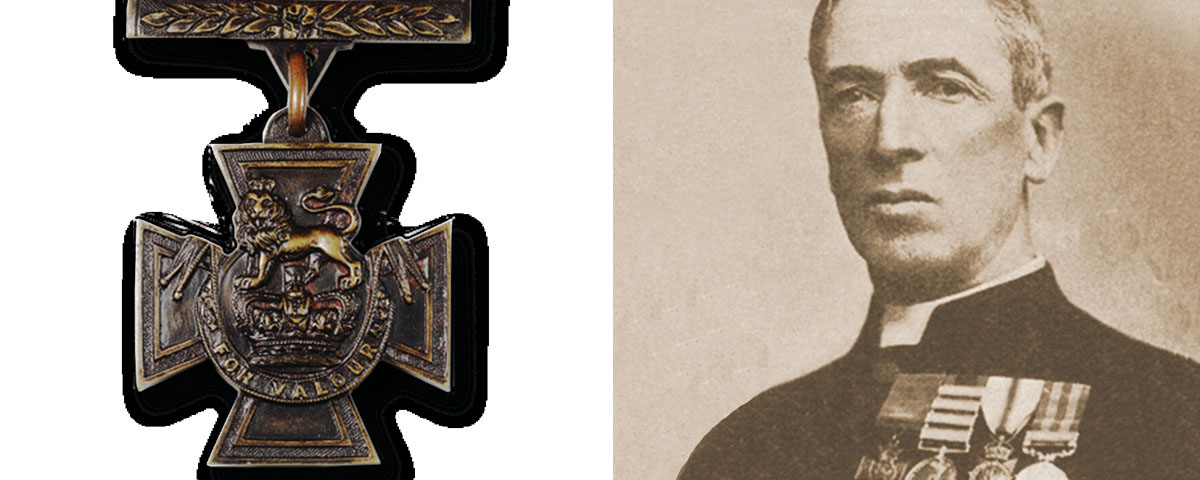The Rev. James Adams is the only clergyman and the last of just five civilians to have received the Victoria Cross—Britain’s highest award for gallantry in the face of the enemy. It was a singular honor for a man who spent his life serving others in the name of God.
James William Adams was born on Nov. 24, 1839, in County Cork, Ireland, attended Trinity College, Dublin, and was ordained an Anglican minister in 1863. Three years later he joined the Indian Ecclesiastical Establishment as a military chaplain, a post he retained for the next 20 years. Described as a “muscular, fresh-complexioned gentleman and a keen sportsman,” the padre was said to be “one of the most deservedly popular chaplains that ever accompanied a British force into action.” Adams traveled with a portable altar to conduct services for men in the field and won acclaim for his selfless work treating victims of smallpox and an 1868 cholera outbreak in Peshawar.
In 1879 the 40-year-old chaplain accompanied Maj. Gen. Sir Frederick Roberts as part of the British and Indian army column dispatched to avenge the assassination of military envoy Sir Louis Cavagnari and his staff in Kabul, Afghanistan. At Kila Kazi on December 11 an army of 10,000 Afghans ambushed an advance detachment of the 9th (Queen’s Royal) Lancers. Roberts arrived on scene—accompanied by Adams—and gave the rash order to 170 men of both the 9th Lancers and 14th Bengal Lancers to charge the overwhelming foe. As the move only briefly checked the Afghans, Roberts ordered a second charge. Nine officers and 55 rank and file fell dead or wounded in the desperate actions.
As the lancers fought to escape annihilation following the shattered charges, Adams encountered a wounded trooper and leaped from his horse to assist. He tried to hoist the man atop his own horse, but the charger bolted, leaving both men afoot. Stumbling toward the rear, Adams supported the lancer until delivering him to friendly troopers.
Amid the chaos Adams spotted two more lancers trapped beneath their dead horses in a water-filled ditch. Without a thought for his own safety, the unarmed chaplain plunged into the water. He struggled to free the first man he reached, grabbing hold of his uniform or whatever he could. All the time fanatical Afghans with unsheathed knives, curved talwars and Snider and Enfield rifles rode by within yards of the conspicuous trio, “so close to the ditch,” Roberts recalled, “that I thought my friend the padre could not possibly escape.” But through brute strength and a refusal to give up, Adams managed to yank both men from beneath their dead mounts and haul their exhausted frames up the slippery ditch out of harm’s way.
In the wake of the battle Roberts appropriately dubbed Adams the “Fighting Parson,” noting his faithful aide had “behaved in this particular place with conspicuous gallantry.” The general also granted the civilian chaplain the rare honor of a recommendation for the VC. On Dec. 1, 1881, Queen Victoria herself presented Adams with the medal at Windsor Castle.
The “Fighting Parson” continued to serve in India and Burma until retiring in 1886. Returning to England, he served as a rector and later as a chaplain to King Edward VII. Adams died on Oct. 20, 1903, at age 64, one lancer memorializing him as “a great and good man grown old with other people’s sorrows.” His widow presented his portable altar to the civilian congregation he had served until his death. In 2007 his gravestone was restored and a bronze plaque erected to commemorate the deeds of the great and good man. MH





